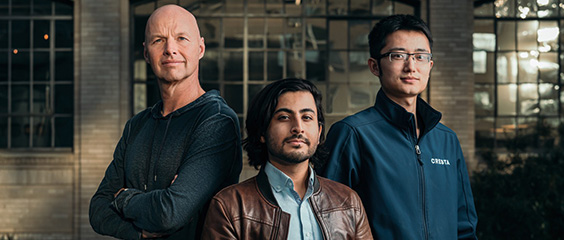
With the personal computer and then the mobile phone, the past 40+ years have brought incredible technological advances to office work around the world. But despite these new computing platforms, basic tasks like data entry and fragmented expertise in functions like sales persist and strain worker productivity. There’s a real opportunity for AI to transform the way humans work through a combination of automation and augmentation, which can help workers spend less time on repetitive tasks, and more time on higher value work. This powerful duo can ultimately lead to step-function changes in productivity, and upskilled workers.
Enter Cresta, which is pioneering a new expertise management platform that leverages state of the art AI techniques to make every employee an Expert on Day One. Cresta’s unique approach to using both automation and augmentation drives worker efficiency and effectiveness.
Cresta’s initial target market for their expertise management platform is contact centers in retail, SaaS, financial services, and telecom verticals, which are undergoing significant technological transformations. There is an explosion in the growth of conversational commerce with upwards of $40B projected to be spent by 2022, and a shift to online chats with 265B+ digital call center chats per year. Contact centers are increasingly becoming revenue drivers and a key to differentiated customer experiences, meaning that agents need to upskilled to better focus on interactions with customers.
Yet agents at contact centers can take up to 7 months to be fully ramped, and have short average tenures (only 11 months) with expertise scattered across the team. The market is lacking a solution that improves new agent effectiveness and accelerates the entire team’s productivity from day one.
Cresta’s expertise management platform uses a deep reinforcement learning architecture to observe and learn from the top performing agents, and distribute that expertise to every agent via real-time coaching, guided responses and workflow automations. Cresta’s platform ingests and trains on rich conversational and CRM data across chat and voice channels. Cresta also has coaching interfaces for managers, insights and reporting for executives, and workflow automations across underlying CRM systems.
The company’s product is globally deployed across large Fortune 500 accounts who are already seeing significant results. Agents are more effective, more efficient, and ramp up in significantly less time, resulting in hundreds-of-millions of dollars in incremental revenue driven by their software. Interested in seeing how it works? Sign up for a demo here.
We are thrilled to share that we led the Series A in Cresta. Co-Founders Zayd Enam (CEO), Tim Shi (CTO), and Sebastian Thrun (Chairman) are talented technologists who met at the Stanford AI Lab where they developed some of the pioneering research that has become the backbone of Cresta. During the past two and a half years building Cresta, the founders have shown themselves to be highly customer centric, incredibly gritty, prolific recruiters, and high conviction in their willingness to be unconventional in their journey building Cresta. Prior to founding Cresta, Zayd and Tim were working on their PhDs with Sebastian, who has previously founded KittyHawk, Udacity, Google X and the Google self-driving car project. Cresta is growing a very strong product and engineering team from places like Google, Facebook, and Stanford. If you’re interested in joining the team, check out open positions here.
Cresta joins a distinguished list of enterprise software companies that Greylock has partnered with over the years, including Workday, Palo Alto Networks, Okta and Cloudera. We’re privileged to back the Cresta team and look forward to working closely with them as they build an industry defining company that reimagines how humans work.
